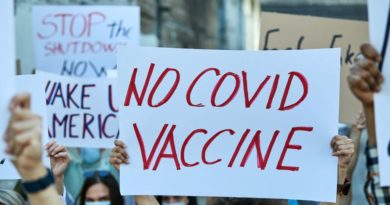Misinformation impedes efforts to control Covid, say studies
Researchers at the University of Delaware carried out multiple studies to highlight the spread of the stigma, stereotypes, and conspiracy theories alongside Covid-19.
The researchers intended to understand the impact of misinformation as they believe it “is important to identify potential barriers to public health efforts” to combat the virus.
How to help the public overcome Covid-19 stigma
Valerie Earnshaw, associate professor in UD’s Department of Human Development and Family Sciences, and lead author of the studies, said: “Evidence suggests that people are more likely to believe conspiracy theories when they feel anxious, powerless, and unable to control their outcomes.”
She added: “Pandemics such as Covid-19 are powerful contexts wherein individuals may turn to conspiracy theories in an attempt to restore feelings of safety and control.”
The researchers noted that the more prominent the misinformation, the more difficult it will be for communities to bring the pandemic under control.
Contain spread of virus stigma
First study
The first study, titled Anticipated Stigma, Stereotypes, and COVID-19 Testing, published in the journal Stigma and Health, suggests that stereotypes are perhaps the barriers to Covid-19 testing efforts. Earnshaw said that the results are very similar to previous studies about HIV and Ebola stigma.
“We know from studies on mental illness and HIV that stigma will keep people from getting tested. And stereotypes are one way that people experience stigma. Stereotypes are how stigma gets into our heads and shapes our views. Stereotypes help people feel safe,” she added.
She said: “Stereotypes help people believe that those who get Covid or HIV, are unlike them or doing the wrong thing. Stereotypes can sometimes give people a false security blanket.”
YouTube will remove content with misinformation about Covid-19 vaccine
Second study
The second study, titled COVID-19 conspiracy beliefs, health behaviors, and policy support, appeared in the journal Translational Behavioral Medicine. It found that one-third of participants believed in one or more conspiracies about Covid-19.
The findings of the study suggest that belief in conspiracy theories makes a person less likely to support public health policies designed to slow the spread of the virus.
Despite the prevalence of the misinformation, both studies indicated that people trust their personal doctor, regardless of their conspiracy beliefs. In the first study, most participants agreed that they would get tested if ordered by their doctor. In the second study, over 90 per cent said they trusted information about Covid-19 from their doctor.
*** This article has been archived for your research. The original version from BusinessLine can be found here ***


